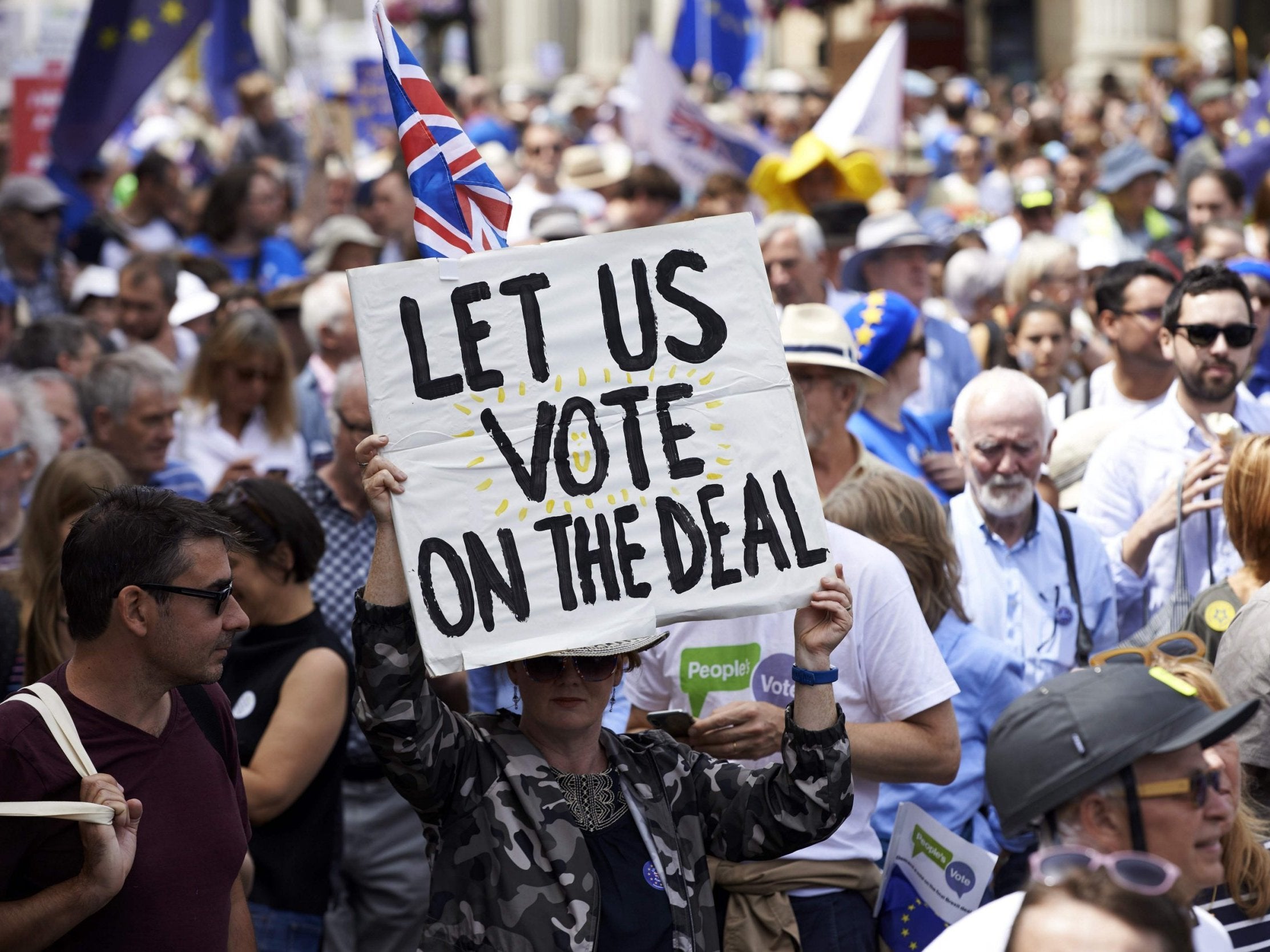How would a Final Say referendum happen?
Analysis: As Labour members overwhelmingly back another referendum, chief political commentator John Rentoul looks at the path to a public vote on Brexit

Three quarters of Labour Party members want a new referendum on Brexit, according to a YouGov survey published on Wednesday. And the betting markets think there is a 40 per cent chance of it happening. But how could it come about?
The first problem is time. There isn’t time to hold a referendum on a normal timetable, which would take at least six months. Of course, Greece held a referendum on the 2015 bailout in just eight days, but in Britain simply getting the legislation through a hung parliament would be impossible before exit day, 29 March.
Not only would a decision have to be made to hold another referendum, therefore, but also to postpone the UK’s departure from the EU. That raises more problems. The UK government could ask for an extension to the two-year notice period set out in Article 50 of the Treaty on European Union. That would need the unanimous agreement of the other 27 members. They have all said they would welcome the UK having the chance to change its mind about leaving, but it does also mean that any one of them could block an extension – or set conditions, such as Spain on Gibraltar or France on fish.
Subscribe to Independent Premium to bookmark this article
Want to bookmark your favourite articles and stories to read or reference later? Start your Independent Premium subscription today.
Join our commenting forum
Join thought-provoking conversations, follow other Independent readers and see their replies